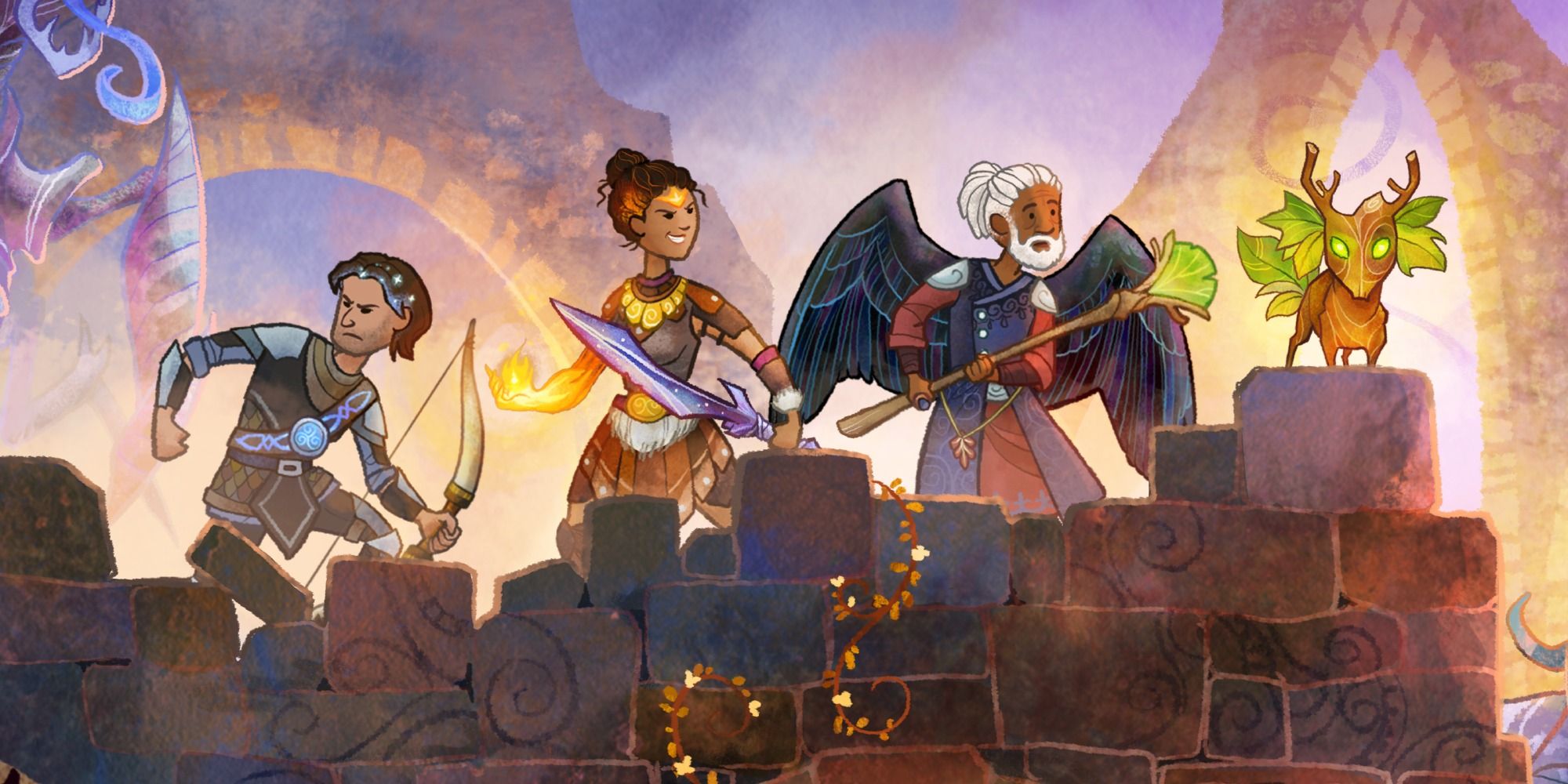
Wildermyth is a new roguelike strategy game where the player, or players, will craft their own procedurally generated story. The game boasts its own unique system where characters will never evolve in quite the same way, making each of them distinct from one another.
RELATED: RPG DLCs Even More Ambitious Than Final Fantasy 7 Remake's INTERmission
All of Wildermyth's mechanics fit together, to some extent, in how the player approaches combat. This aspect of the game can be a daunting task. Many factors go into each encounter, keeping the player on their toes as they progress through the campaign. Each battle takes place on a square grid, which the player must traverse. From there, players can formulate their own strategies to dominate in their game.
9 Heroes
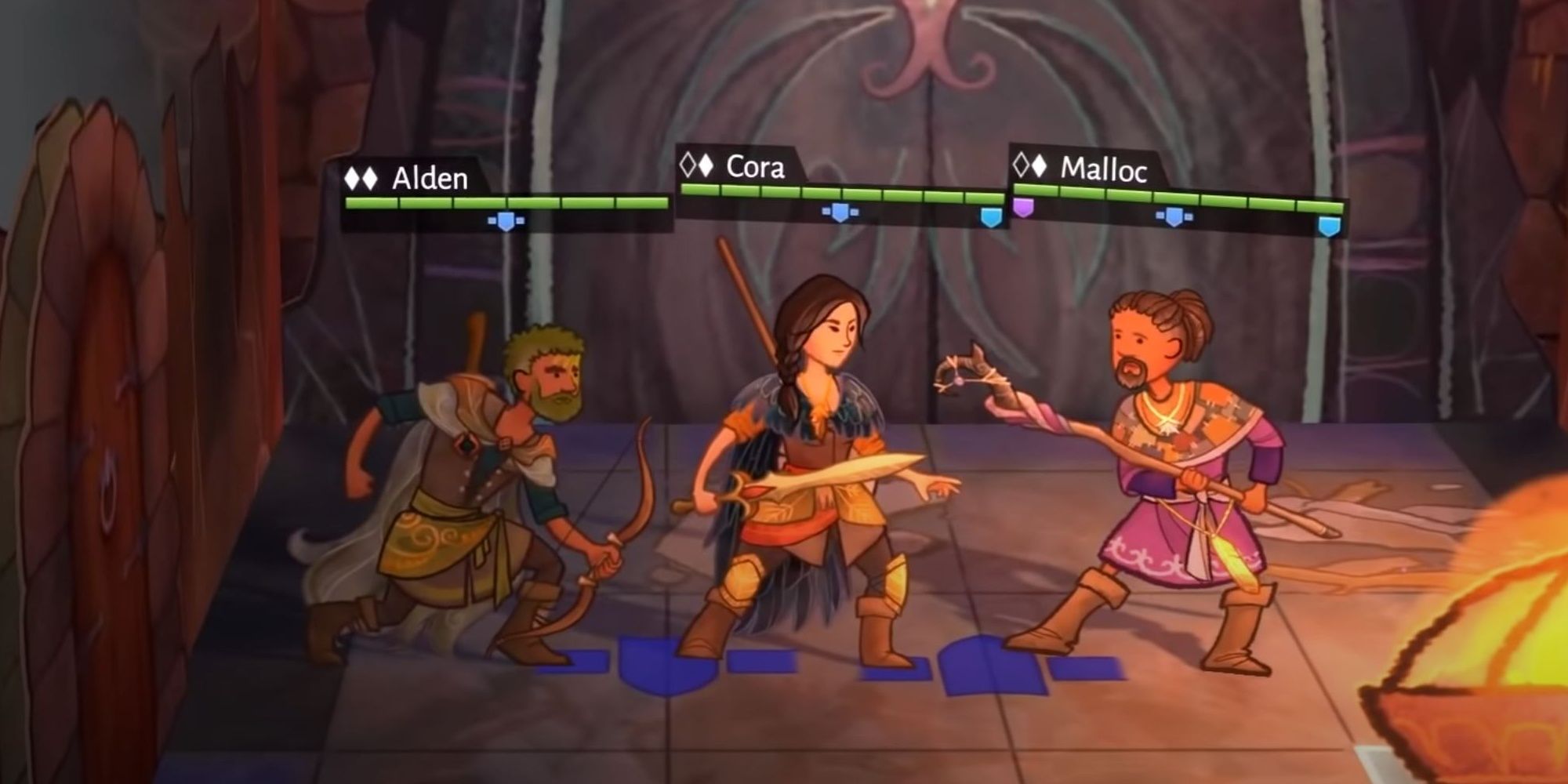
The fast-paced RPG story will feature heroes who can fill three roles: Warriors, Hunters, or Mystics. Each of these classes has its own unique style of play, as follows.
- Warriors are melee-focused, and can wield one-handed or two-handed weapons as well as a shield.
- Hunters can utilize ranged and/or one-handed weapons.
- Mystics can use a staff or a wand to infuse with their surroundings which fuels their actions.
A healthy lineup will usually have a mix of two or three different classes. Each class can branch out into many specializations, to make each individual of a class unique from others.
8 Foes
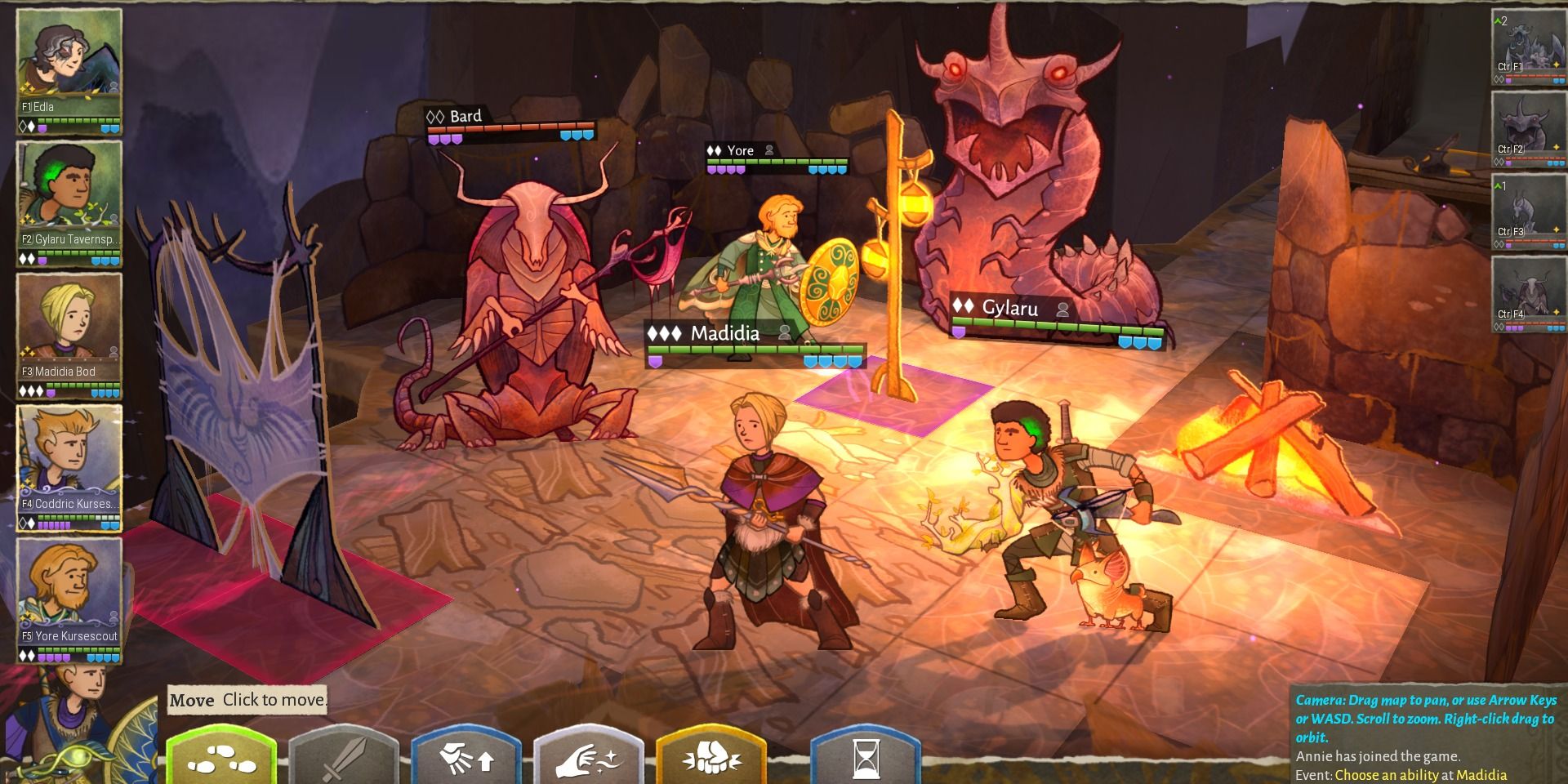
The game has a wide selection of unique monster factions, each with its own deck of monsters. They develop independently from each other over the course of the game as calamities occur. These factions include:
- Deepest: Cultlike enemies and the monsters they worship
- Drauven: Lizards with dragons and other creatures of the sky
- Gorgon: Corrupted aspects of nature
- Morthagi: Clockwork machine creatures
- Thrixl: Mystical insects
These creatures come into battle after cards from one of the faction's decks are drawn. They each have their strengths and weaknesses. Some are ranged, and some possess strange abilities, meanwhile, others are more resilient, either to physical or magical damage.
7 Line Of Sight
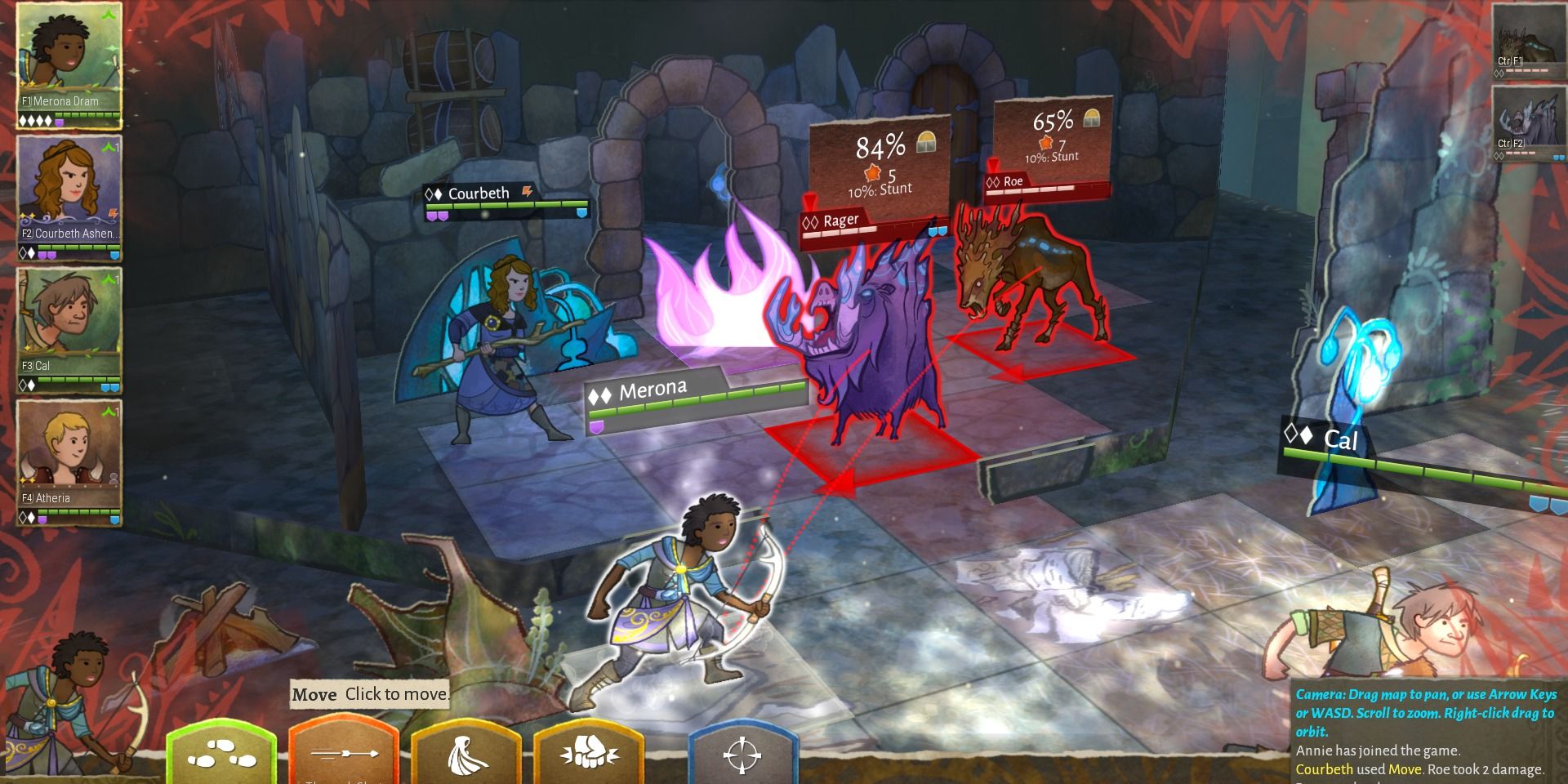
Ranged attacks, like those that belong to the Hunter class and Mystic class, require line of sight to use. Line of sight can be obscured by either solid walls or other enemies, and works a bit differently depending on class.
- For Hunters using bows, the line of sight is drawn from them to the creature or object they are aiming at within effective range.
- For Mystics, the line of sight is drawn from the infused object they that are utilizing, to their target within range.
Be sure to keep line of sight in mind when using ranged attacks. For example, there are cases where the attacker can lean around cover in order to achieve a better shot.
6 Attack
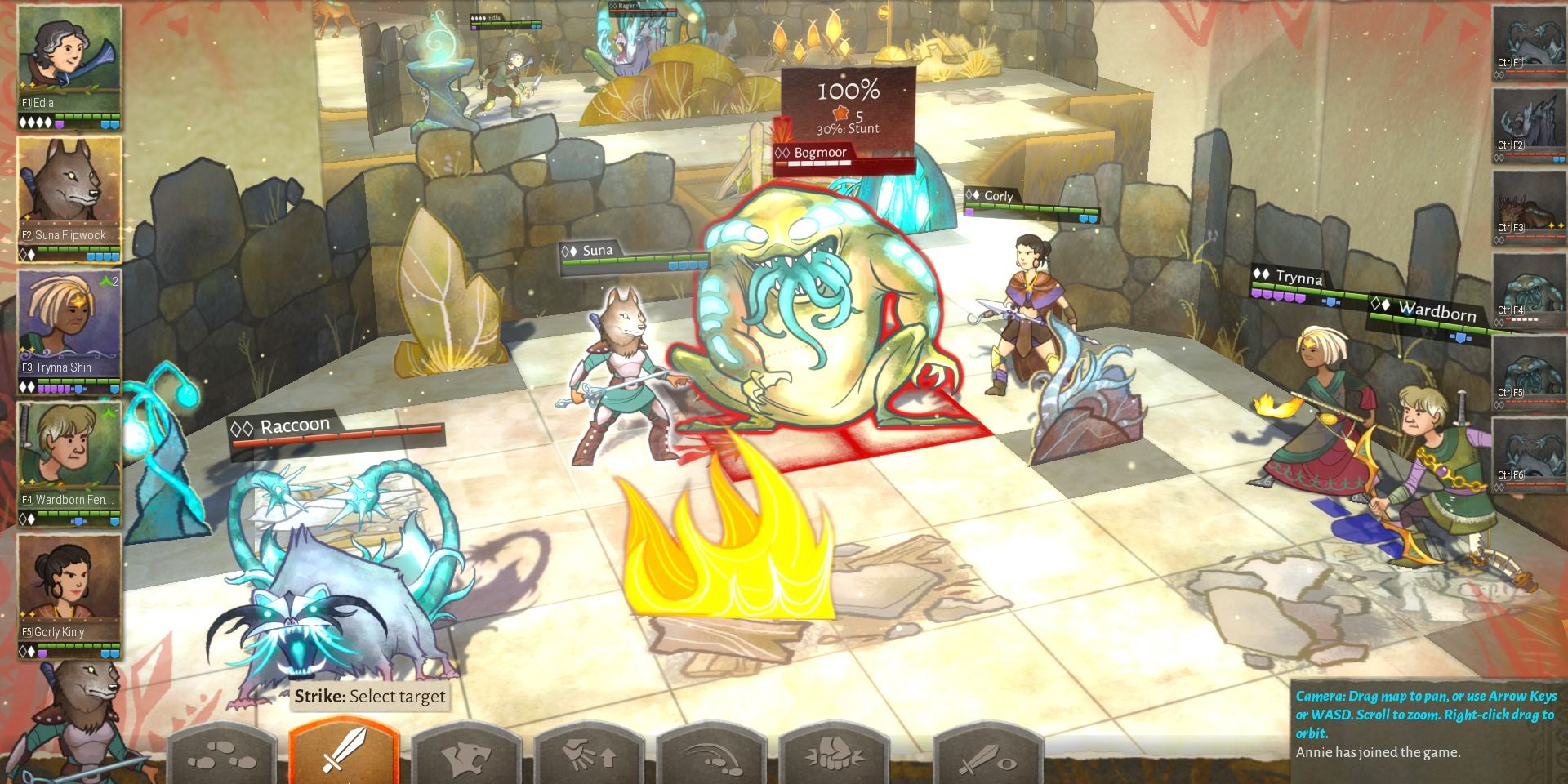
On their turn, players will attack with either melee accuracy or ranged accuracy. This will determine a player's chance of hitting their target. Certain factors can boost or decrease this accuracy, so pay attention to ways players can increase their chances of successful attacks. For example, Hunters, unless they have the correct perk, cannot attack enemies with a ranged attack if they are too close.
RELATED: Classic RPG Tropes That Aren't Around Anymore
Another attack mechanic, called Stunt, is effectively a critical hit. It boosts damage, and in some cases can even have other interesting effects. These can be determined by not only the character's stats, but also the equipment they use.
5 Defense
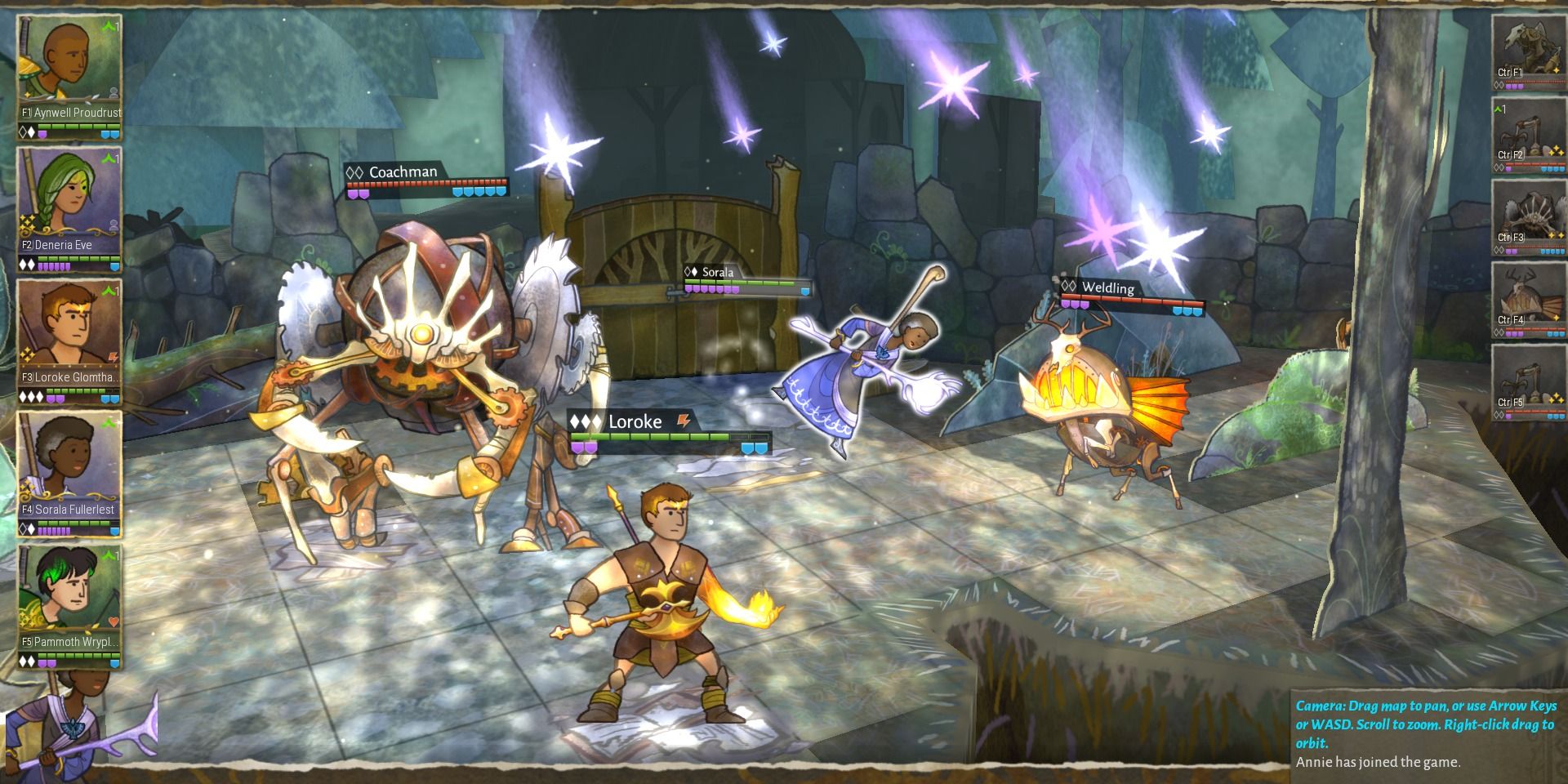
A character's defense is determined by three factors:
- Block is simply a character's ability to block attacks, as it negates all damage if triggered.
- Dodge has the same functionality as Block but, functions off of different stats.
- The first line of defense when the probabilities are calculated is Cover, which is determined by the player's position. A defender must be adjacent to a piece of cover for it to trigger. Depending on the attacker's angle, line of sight, and the piece of cover that is being utilized, the cover will either be calculated as Partial Cover or Good Cover.
4 Damage
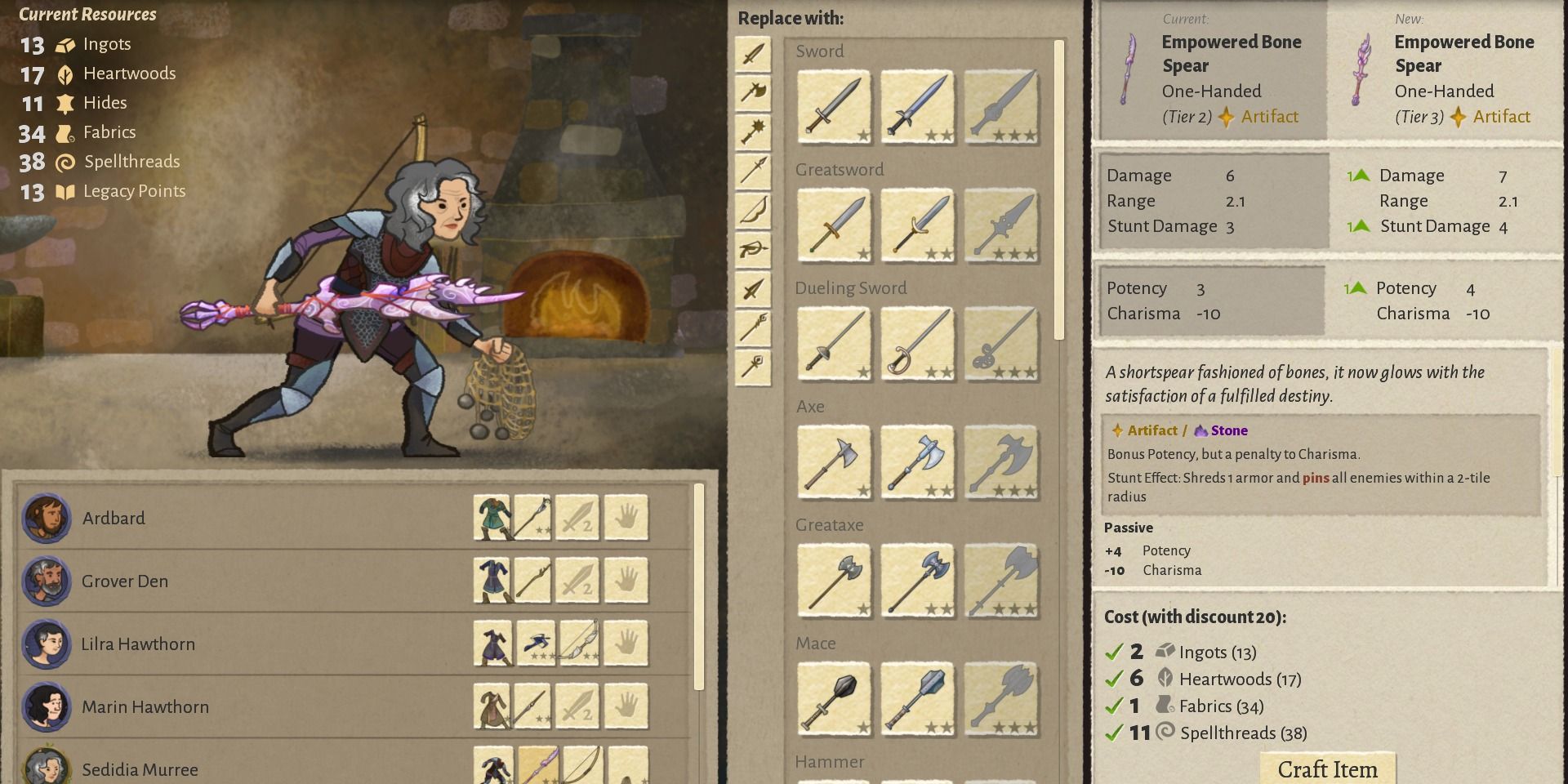
Damage falls into two different categories, physical and magical.
- Against physical damage, defenders may have armor to negate some of the incoming damage if the attack connects. However, armor can be shredded, which removes some of the defender's total armor.
- Against magical damage, a defender may have warding, which acts as magical armor.
Some enemies deal Piercing damage, which ignores some armor and warding; naturally, this makes defense trickier. To increase defense, characters can also stand adjacent to each other to give themselves walling. Walling grants a small defense buff which negates up to one damage for everyone in the lineup, both physical and magical.
3 Status Effects
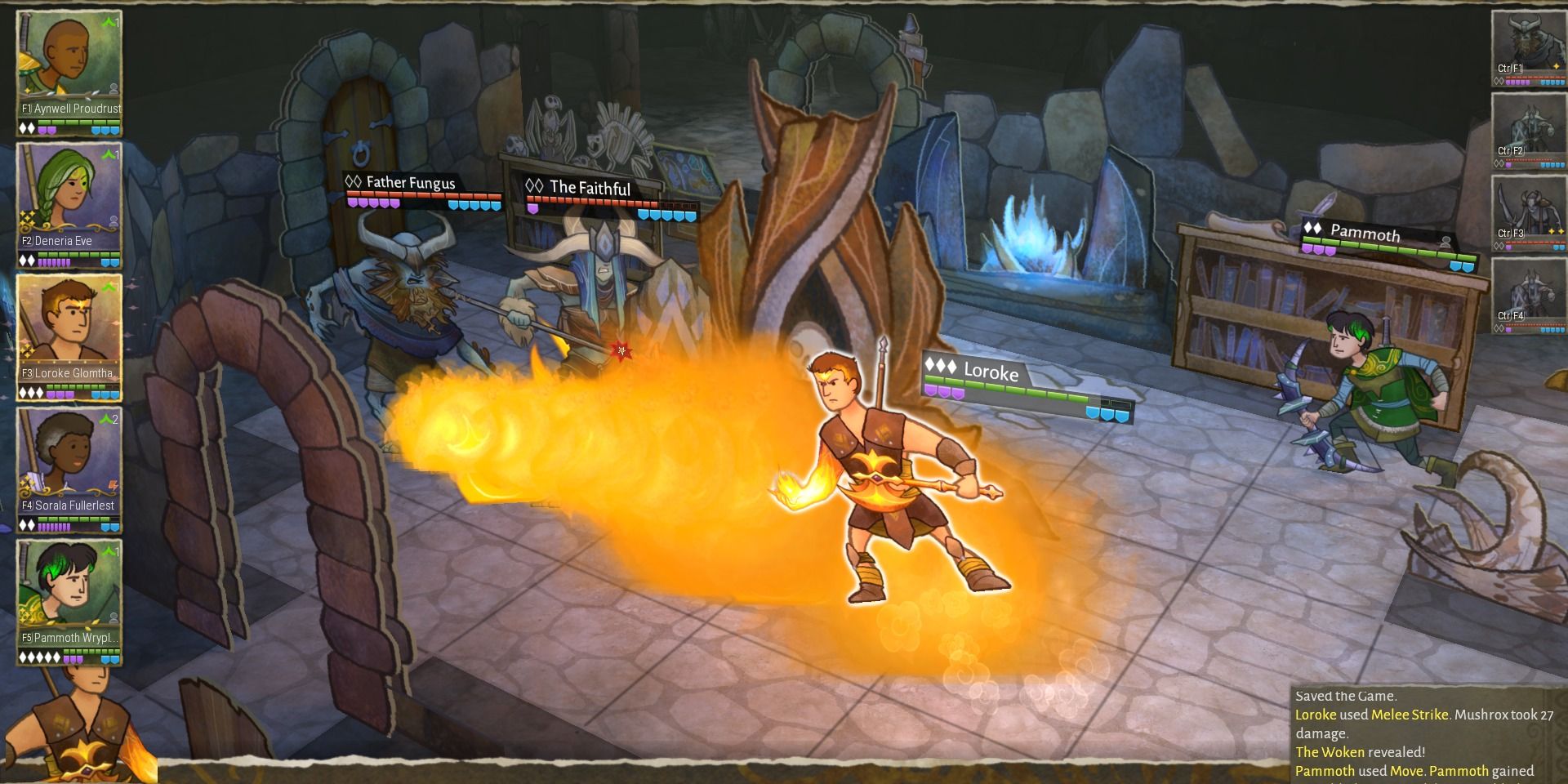
Status effects can affect both enemies and allies. Players must pay attention to ailments that affect their party, and strategically employ these effects to gain an advantage over enemies. Effects include:
RELATED: RPGs From The PS1 In Dire Need Of A Remake
- Blinded: Causes the unit afflicted to miss their next attack.
- Engaged: Forces the affected unit to attack the person that cast it on them.
- Hidden: The character becomes invisible, and their next attack negates armor. Most actions will remove Hidden, except opening a door.
- Hobbled: Decreases the unit's speed by 2 tiles.
- Pinned: Prevents the afflicted unit from moving, and lowers their defense.
- Poisoned: An afflicted unit takes damage on their turn, which bypasses any defense. It lasts for a short duration, but it can stack.
- Stunned: Causes the afflicted unit to lose their turn, and to lose dodge and block for that turn as well.
- Deafened: Causes the afflicted unit to do less bonus damage, and to lose potency.
2 Modifiers
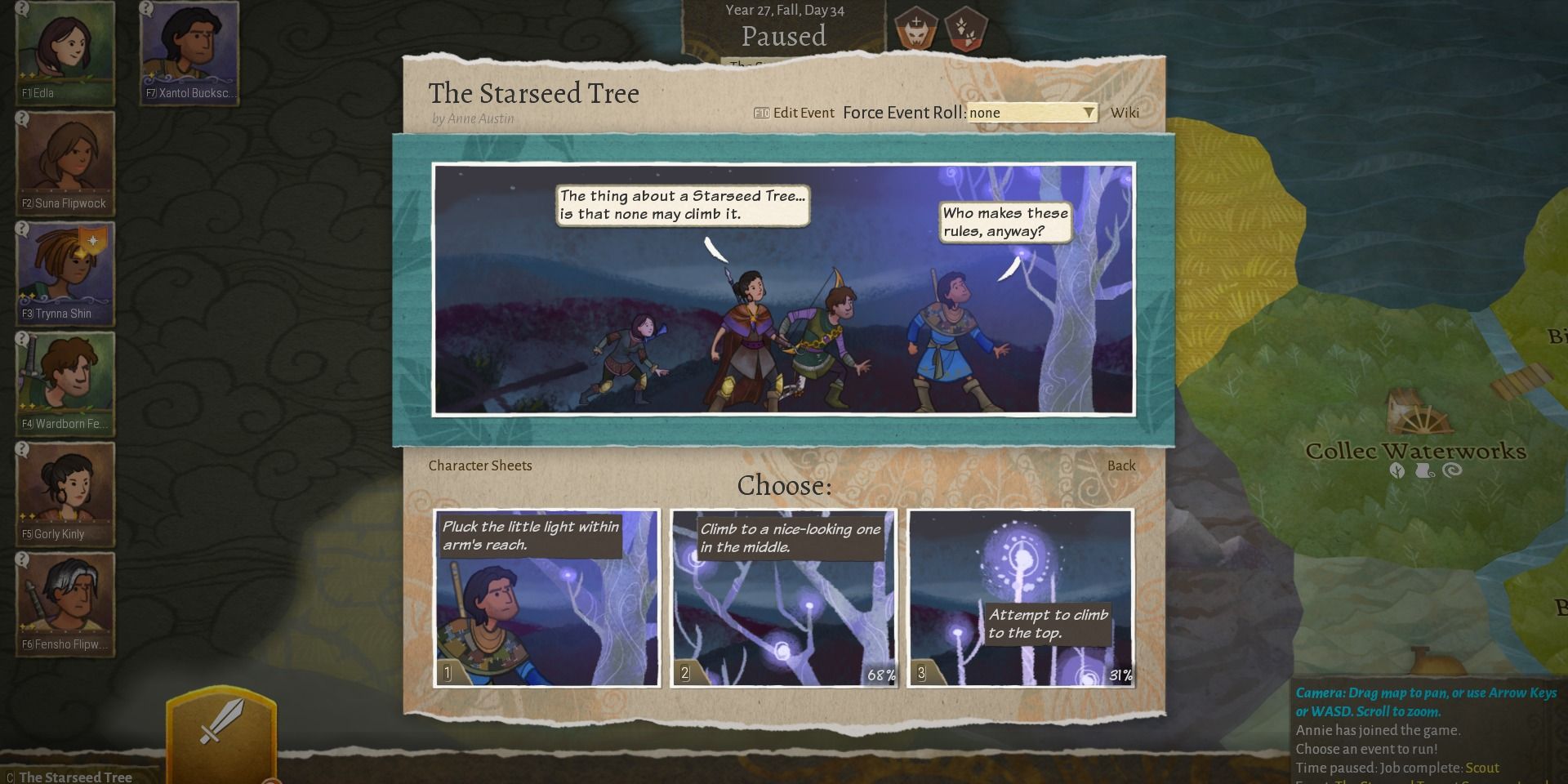
Modifiers can change certain aspects of a mission. They usually depend upon circumstances of the event leading up to the battle. These include:
- Anticipation: All doors begin combat open.
- Courage: All party members gain +2 damage/potency.
- Cunning: Flanking attacks this round of combat deal +1 damage.
- Disable: One party member gains stun (2) at the beginning of combat.
- Dismay: All foes gain +1 hitpoint to start the mission.
- Disorder: Walling provides no armor.
- Endurance: All party members gain +1 armor and +1 warding.
- Exhaustion: All swift actions are single actions for the duration of combat.
- Fortitude: All party members gain +1 temporary hit point.
- Haste: All party members have +1 speed for the duration of combat.
- Insight: Double the stunt chance for all party members.
- Intimidation: All foes suffer 2 damage to start the mission.
- Nausea: All party members lose 1 hit point.
- Stealth: All party members begin combat in Greyplane (Hidden).
- Stoicism: All party members gain +1 armor and +1 warding.
- Wound: One party member loses half of their hit points at the start of combat.
1 Death
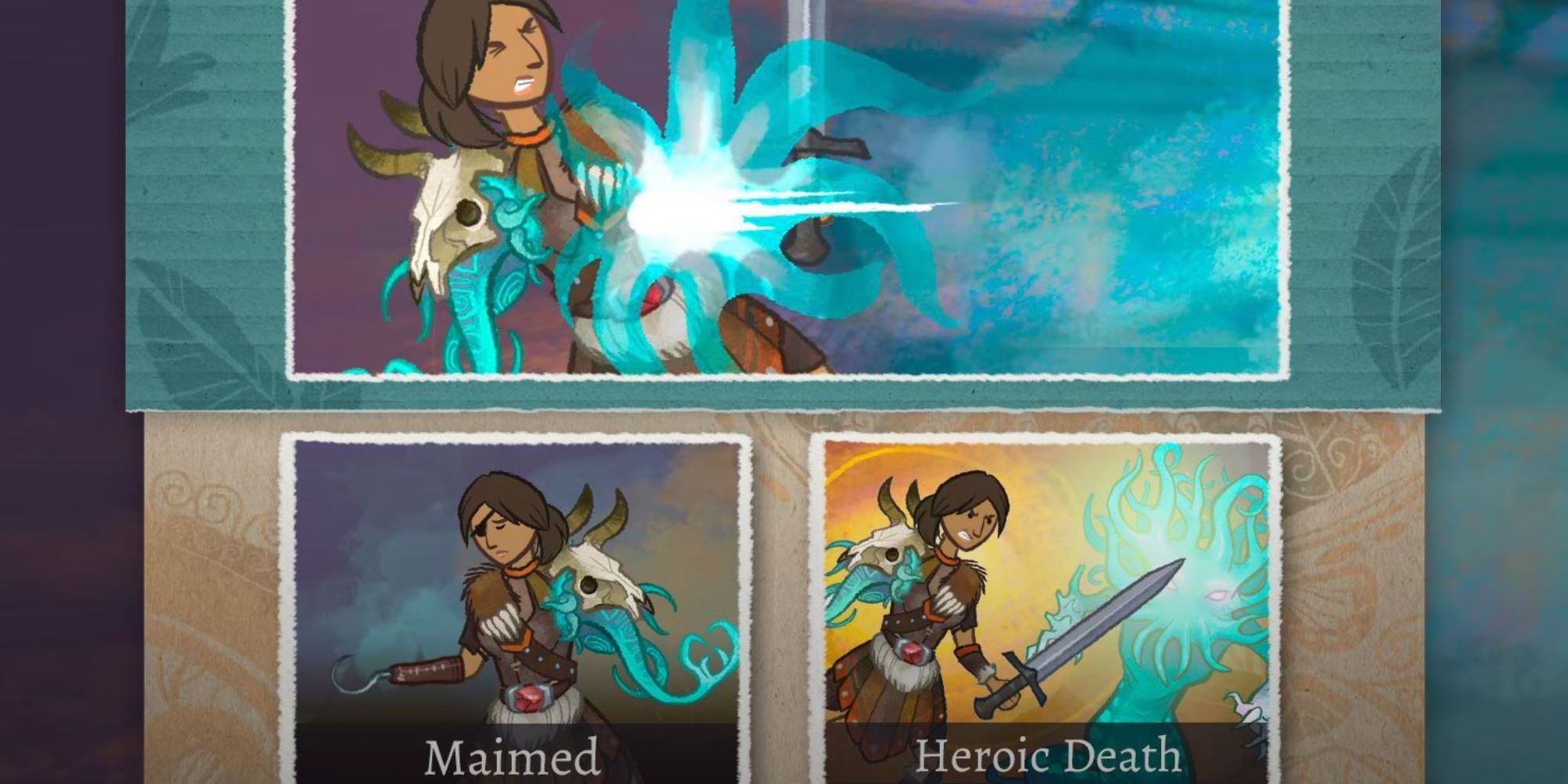
When a Hero has lost all of their HP, the player can choose to either die immediately and give a buff to the rest of the party, or be maimed with the hope of being rescued. A maimed hero loses a random limb, which limits what that hero can do. All is not lost, though — special limbs can be granted depending on the situation.
If a maimed hero dies for a second time over the course of the same chapter, they will be granted no choice and will die immediately, stressing the importance of knowing how to heal. Dead heroes can have memorials built for them, and can be added to a player's legacy.
NEXT: Indie Game Snacko Devs Talk Involvement With Wholesome Direct

